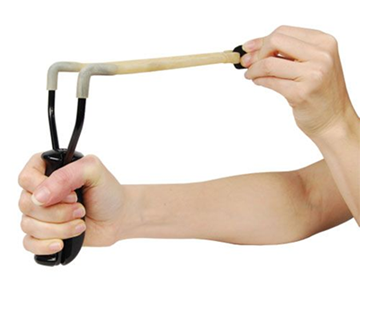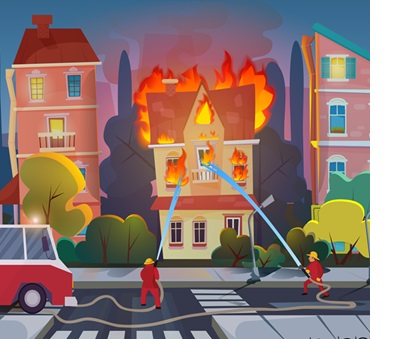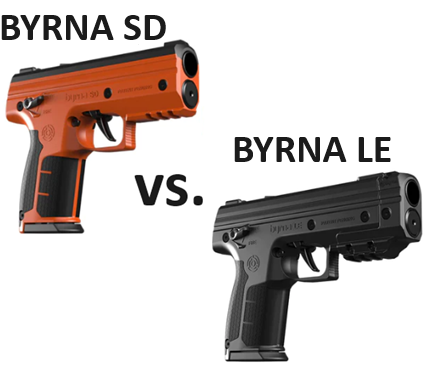Sociopath vs Psychopath: Understanding the Differences and How to Protect Yourself

When we hear the terms "sociopath" or "psychopath," we often think of cold, calculating individuals who lack empathy and engage in manipulative behavior. These terms are often used interchangeably, but there are actually some differences between the two. In this blog, we'll explore the characteristics of sociopaths and psychopaths, how they differ, and what the implications are for those who encounter them.
What is a Sociopath?
Sociopathy, also known as antisocial personality disorder, is a personality disorder characterized by a pervasive pattern of disregard for the rights of others, as well as a lack of empathy and remorse. Sociopaths are often charming and charismatic, which makes it easy for them to manipulate others. They may engage in impulsive behavior, have a history of criminal activity, and lack a sense of responsibility or accountability for their actions.
Sociopaths often have a history of childhood abuse, neglect, or trauma, and may have difficulty forming and maintaining relationships. They may also have a history of substance abuse and other risky behaviors. While sociopaths are often seen as dangerous, it's important to note that not all individuals with antisocial personality disorder are violent or criminal.
What is a Psychopath?
Psychopathy, also known as psychopathic personality disorder, is a personality disorder characterized by a lack of empathy, remorse, and guilt, as well as a tendency toward impulsive behavior and manipulation. Psychopaths are often very charming and charismatic, which allows them to easily manipulate others. They may engage in criminal activity and have a disregard for societal norms and laws.
Psychopaths are often seen as more dangerous than sociopaths because of their tendency toward violence and aggression. They may also be more organized and methodical in their behavior, which can make them difficult to detect. Like sociopaths, psychopaths often have a history of childhood abuse, neglect, or trauma.
How do Sociopaths and Psychopaths Differ?
While sociopaths and psychopaths share many similarities, there are some key differences between the two. Sociopaths tend to be more impulsive and have difficulty controlling their behavior, while psychopaths are often more calculating and methodical. Sociopaths may have a history of criminal activity and engage in risky behavior, while psychopaths are more likely to engage in violent or aggressive behavior.
Another difference between the two is the way they interact with others. Sociopaths are often charming and charismatic, but may struggle to form and maintain relationships. Psychopaths, on the other hand, may be very good at manipulating others and forming relationships, but these relationships are often superficial and based on the psychopath's own needs and desires.
Implications for those who encounter Sociopaths and Psychopaths:
Encountering a sociopath or psychopath can be a challenging and sometimes dangerous experience. These individuals are often very skilled at manipulating others, which can lead to a lot of confusion and hurt for those around them. It's important to recognize the signs of sociopathy or psychopathy early on in a relationship or interaction, in order to protect oneself from potential harm.
If you suspect that you may be dealing with a sociopath or psychopath, it's important to set clear boundaries and communicate your needs and expectations clearly. These individuals may try to gaslight or manipulate you into believing that you are the problem, so it's important to trust your instincts and seek support from friends, family, or a therapist.
How to protect yourself against sociopaths and psychopaths?
The following are steps you can take to safeguard yourself against sociopaths and psychopaths:
- Trust Your Gut Instincts:
The first step in protecting yourself from sociopaths and psychopaths is to trust your gut instincts. These individuals are often skilled at manipulating others and can be charming and persuasive. However, if something about a person or situation feels off, it is important to listen to your intuition. Your instincts are your first line of defense against potential harm.
- Set Clear Boundaries:
One of the ways sociopaths and psychopaths gain control over others is by pushing boundaries. It is important to set clear boundaries with these individuals and to communicate your needs and expectations clearly. If someone is making you uncomfortable, let them know. If they continue to violate your boundaries, it may be necessary to end the relationship or interaction altogether.
- Learn to Say "No":
Sociopaths and psychopaths often prey on those who are empathetic and willing to help others. While it is important to be kind and compassionate, it is also important to learn to say "no" when necessary. If someone is asking for something that makes you uncomfortable, it is okay to decline. Remember that your needs and well-being are important, and you have the right to prioritize them.
- Avoid Isolation:
Sociopaths and psychopaths often target individuals who are isolated and vulnerable. To protect yourself, it is important to build a support network of friends and family who can provide emotional support and help you recognize potentially dangerous situations. Participating in social activities and joining groups that share your interests can also help you build a sense of community and connectedness.
- Document Everything:
If you suspect that you are dealing with a sociopath or psychopath, it is important to document everything. Keep a record of any communication or interactions, including dates and times. This documentation can be helpful if you need to seek legal or law enforcement assistance in the future.
- Seek Professional Help:
If you are dealing with a sociopath or psychopath, seeking professional help from a mental health provider can be a critical step toward protecting yourself. A therapist can help you develop coping strategies, set healthy boundaries, and recognize potential warning signs. They can also provide support and guidance as you navigate the situation.
- Don't Engage in Power Struggles:
Sociopaths and psychopaths thrive on power and control. Engaging in power struggles with these individuals can be dangerous and counterproductive. Instead, focus on setting clear boundaries, communicating your needs, and disengaging from interactions that feel unsafe or uncomfortable.
Protecting yourself from sociopaths and psychopaths requires vigilance, assertiveness, and a willingness to prioritize your own well-being. By trusting your instincts, setting clear boundaries, avoiding isolation, and seeking professional help when necessary, you can safeguard yourself from potential harm. Remember that your safety and well-being are important, and you have the right to prioritize them in all of your interactions and relationships.
Conclusion
While the terms sociopath and psychopath are often used interchangeably, there are important differences between the two. Both individuals exhibit a lack of empathy, but sociopaths tend to be more impulsive, while psychopaths are more calculated and methodical in their behavior. Both can be skilled at manipulating others, making encounters with them potentially challenging and dangerous.
If you suspect that you are dealing with a sociopath or psychopath, it's important to trust your instincts, set clear boundaries, learn to say "no," avoid isolation, document everything, and seek professional help. By taking these steps, you can protect yourself and ensure your safety and well-being.



























